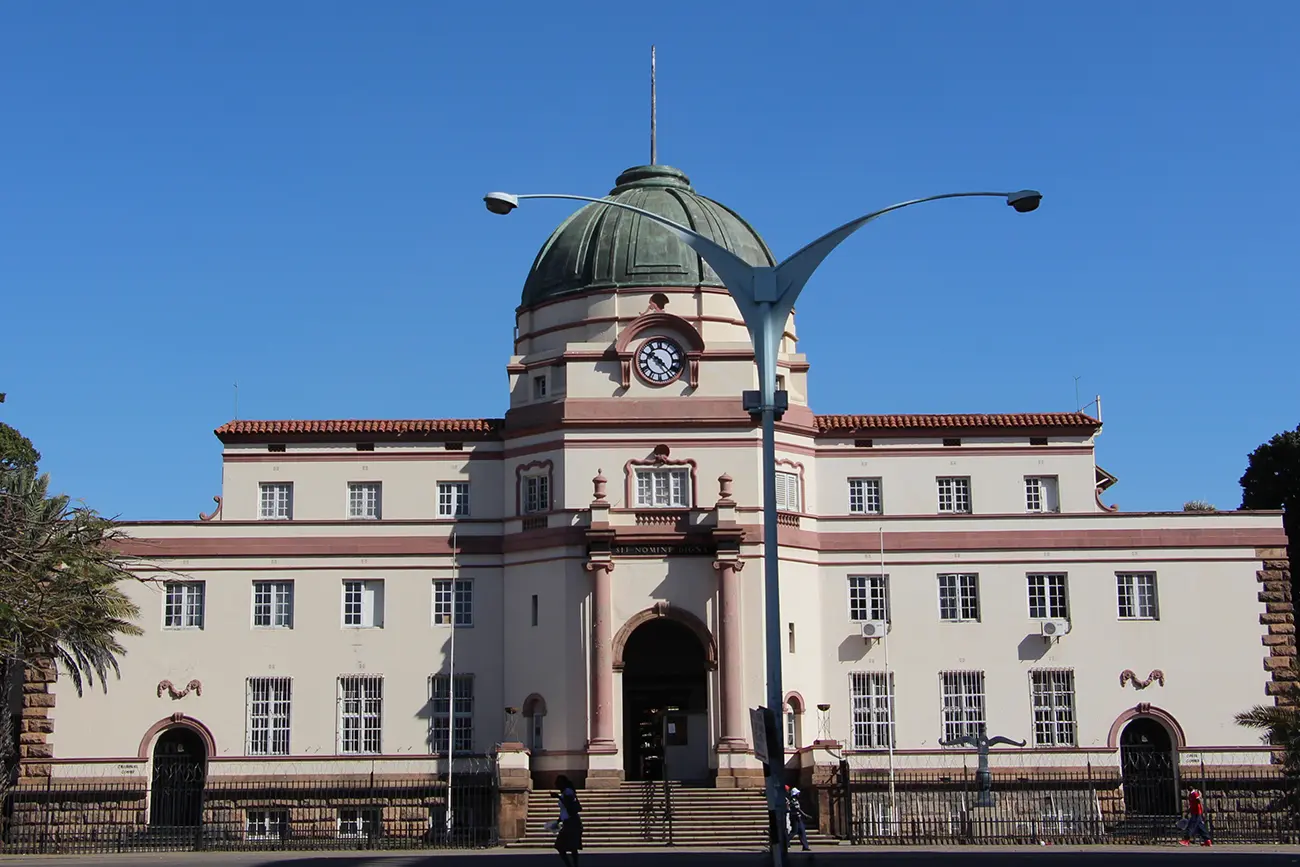
Goal 16 of the Sustainable Development Goals (SDGs) seeks to “promote peaceful and inclusive societies for sustainable development, provide access to justice for all and build effective, accountable and inclusive institutions at all levels”. During 2016, the Southern Africa Litigation Centre, in conjunction with the National Association of Women Judges and Magistrates, the Malawi judiciary and the International Commission of Jurists, convened colloquia in Botswana, Malawi, Zambia and Zimbabwe to encourage discussion on the role of the judiciary and legal profession in achieving Goal 16. This publication seeks to further broaden these discussions so that the achievement of Goal 16 moves from the conceptual to impactful initiatives. The book follows on a previous publication entitled Using the Courts to Protect Vulnerable People: Perspectives from the Judiciary and Legal Profession in Botswana, Malawi and Zambia. As with the previous publication, judges and lawyers in the region reflect on existing barriers to ensuring equal access to justice for all and recent jurisprudential and legal developments that indicate steps towards the achievement of the targets set in Goal 16 of the Sustainable Development Goals.
Download the entire report here.
Chapter by chapter:
Introduction: Anneke Meerkotter
Judicial Independence as an Essential Aspect of the Rule of Law: Thomas S Masuku J
The Importance of Promoting Judicial Independence in the Southern African Region: Kaajal Ramjathan-Keogh
Judicial Integrity and Independence: The South African Omar Al Bashir Matter: Angela Mudukuti
Women’s Economic Rights: Removing Barriers to Women’s Access to Justice in Malawi: Rachel Sikwese J
Beyond Symbolism and Rhetoric: The Role of the Legal Community in Advancing Access to Justice and Development for Persons with Disabilities: Chipo Nkhata, Johnson Jasson, Annabel Raw
Protecting Rural Zambian Communities from Displacement Resulting from Land-Based Investment: Brigadier Siachitema
Access to Complaints Mechanisms for Victims of Healthcare Discrimination: A Developmental Imperative: Annabel Raw
The Death Penalty in Botswana: Time for a Re-Think? Dr Elizabeth Macharia Mokobi
The Role of the Judiciary in Safeguarding and Ensuring Access to Criminal Justice: The Case of Zambia: Anderson Ngulube
The Role of the Judiciary in Safeguarding and Ensuring Access to Criminal Justice during the Pretrial Stage: The Case of Malawi: Dorothy nyaKaunda Kamanga J
Sustainable Development Goal 16 and Access to Justice: The Case of Lay Magistrates in Malawi: Zione Ntaba J
Jurisdictional Limits for Magistrates are Hindering Access to Justice in Malawi: Sylvester Kalembera J
Considering the Best Interests of the Child in Decisions on Incarceration of Care-Givers in Malawi: Chikondi Chijozi and Nyasha Chingore
Some Thoughts on Effective Strategies for Combatting Corruption in the Malawi Judiciary: Rezine Mzikamanda SC JA
The Court’s Role in Contributing to a Culture of Accountability for Corruption: Caroline James
Legal Identity for All – Ending Statelessness in SADC: Liesl Muller
Free Access to the Law in Africa: Mariya Badeva-Bright and Dr Oluwatoyin Badejogbin
Access to Information in Malawi: The Journey to Date and a Quick Survey of the ATI Bill of 2016: Mandala Mambulasa
Towards Freedom of Association and Universality of Rights: The Botswana Court of Appeal Decision in Attorney General v Rammoge and 19 Others: Tashwill Esterhuizen and Brynne Guthrie
The Ambit of Prohibited Grounds of Discrimination in Botswana’s Employment Act: Galesti Baruti J
The Right to Equality in Malawi: Recent Developments in Family Law: Kenyatta Nyirenda J
Balancing National Security and Human Rights: International and Domestic Standards Applying to Terrorism and Freedom of Speech: Professor Jeremy Sarkin



